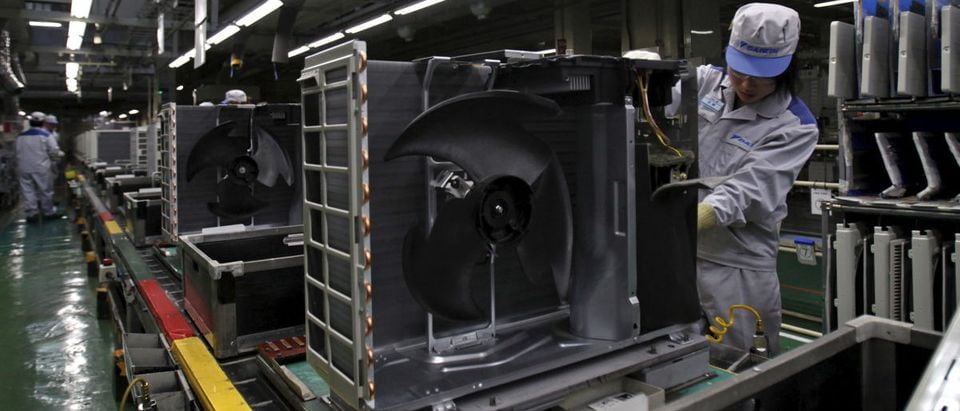The number of air conditioners across the world is expected to triple by 2050, stoking fears that increasing indoor climate control will spur global climate change.
The International Energy Agency (IEA) released a Tuesday report, “The Future of Cooling,” on increasing demand for in-home cooling in the coming decades. Currently, 10 percent of the world’s energy is used for keeping buildings cool, but that amount is expected to rise as hot, developing countries gain access to air conditioners.
“As incomes and standards of living increase, more people will naturally want to buy and use air conditioners to keep cool,” the report states. “Wider access to cooling is necessary, bringing benefits to human development, health, well-being and economic productivity.”
“But it will have a significant impact on countries’ overall energy demand, putting pressure on electricity grids and driving up local and global emissions,” the report states.
The IEA proposes instituting performance standards on air conditioning units to make them more energy efficient. The cooling revolution can continue simultaneously combating the worst of the increase in emissions.
Instituting standards compliant with the Paris Climate Accords — a non-binding international agreement to cut emissions and combat climate change — could double the efficiency of the world’s fleet of AC units.
The standards may adversely impact those who need air conditioning the most. Implementing energy efficiency standards may cut the cost of energy over time but increases the up-front cost of installing new appliances, according to an April 2017 Heritage Foundation report.
“The up-front costs of a more expensive light bulb or appliance may not acutely impact a wealthy or middle-income family’s budget, but the real-world implications of regulations that increase energy costs and take choices away are nothing to dismiss — especially for the poor, who could be disproportionately and severely affected through these higher up-front costs,” the report states.
All content created by the Daily Caller News Foundation, an independent and nonpartisan newswire service, is available without charge to any legitimate news publisher that can provide a large audience. All republished articles must include our logo, our reporter’s byline and their DCNF affiliation. For any questions about our guidelines or partnering with us, please contact licensing@dailycallernewsfoundation.org.


